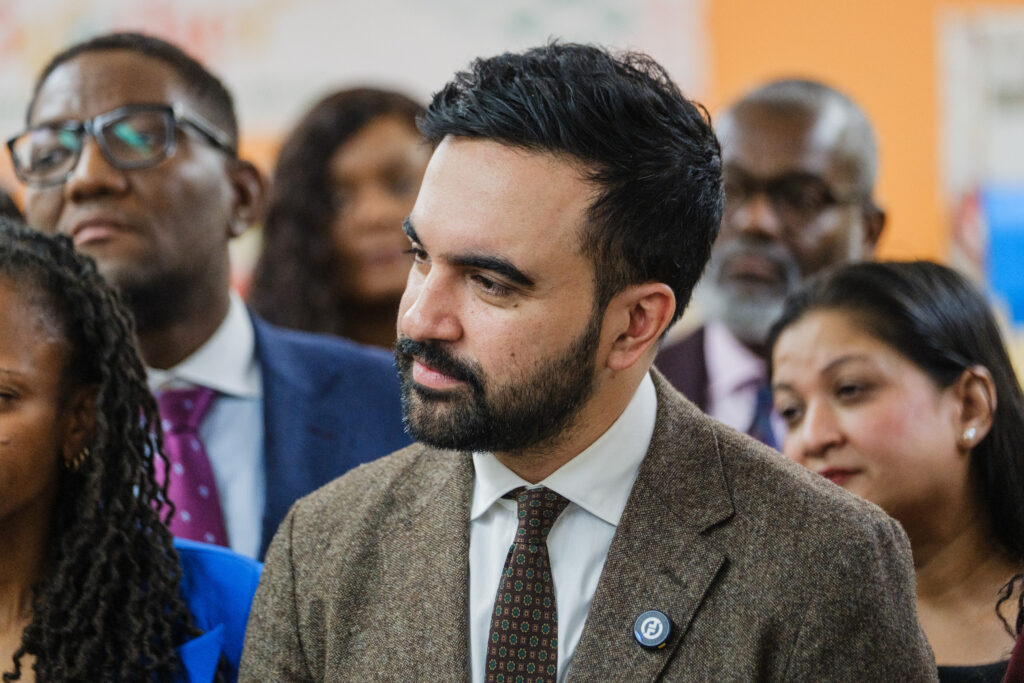🔴 Website 👉 https://u-s-news.com/
Telegram 👉 https://t.me/usnewscom_channel
Scientist: Academic Journals vs. Truth
Long been acclaimed as the “world’s leading science publisher,” publishing group Nature Portfolio in recent years “has sacrificed the epistemic standards of scientific publishing” and “lost its credibility as a truth-seeking enterprise” due to its “unrelenting pursuit of a social justice agenda,” thunders Anna Krylov at The Free Press.
A recent editorial in one of the group’s major journals encouraged scientists to demonstrate their “commitment to DEI” by “promoting scientists of favored identity groups, even if their work lacks the requisite merit.”
In keeping with “citation justice,” Nature Portfolio demands an “ideological pledge” in the form of a “diversity statement.”
Such policies “corrode the standards of scientific publishing” since the “mission of science is the pursuit of truth, not the advancement of diversity, equity, and inclusion.”
Libertarian: A Pack of Privileged Marxists
If Zohran Mamdani’s “victory teaches anything, it is that our peril now comes from the overeducated elites,” fumes Connor Boyack at Reason.
Exit polling “suggests that 42% of voters without college degrees supported Mamdani, compared to 58% of college graduates,” which is “the irony of our age: The more schooling Americans receive, the less capable they seem of learning from history.”
“Socialism, democratic or otherwise, has been tried, and has failed,” but “the same ideas, refurbished in the language of equity and justice, are now sold in Ivy League seminars as moral progress,” and “graduates are led to believe that utopia can be built with enough committees and grievance studies departments.”
Mamdani’s “base doesn’t appear to be the hardworking laborer of Marxist lore, but the well-credentialed and the well-schooled.”
Ukraine war: ‘Just Enough’ Still Not Enough
“Since day one of” the Russian invasion, Ukraine has understood that its survival “requires embracing innovations and adaptations in techniques, tactics and procedures,” explain Jonathan Sweet & Mark Toth at The Hill: “He who adapts fastest wins.”
Kyiv’s modification of weapon systems “has single-handedly created a revolution in military affairs.”
In contrast, Russia “has been stuck in World War II-era tactics,” incurring “more than 1.1 million casualties” and huge losses in materiel. But in the battle over Pokrovsk, Russia has “suddenly tried something new” — small infiltration groups capable of “evading Ukraine drones.”
For Ukrainian forces, “finding and blocking Russian infiltration lanes is now a priority.”
NATO’s strategy of providing “just enough” aid to keep “Ukraine from losing is still not enough,” especially now that Russia’s approach is evolving.
From the right: A Winning Bet on Argentina
“Democrats keep claiming that Trump ‘gave away’ $40 billion to Argentina,” but “the claim isn’t true,” explains John R. Lott Jr. at RealClearPolitics.
“The US didn’t give Argentina money. It entered into a currency swap — and the US has actually earned a profit on the transaction.”
“The first $20 billion swap occurred on Oct. 9, 2025” and the second “followed on Oct. 20”; “on average, the pesos we got in exchange for the dollars were worth more now than when we bought them. As a result, the US now holds more than $41 billion in value from the original $40 billion.”
Treasury Secretary Scott Bessent “recognized the opportunity for the US to stabilize a key partner while making a profitable financial move.”
“There was no handout, no bailout, and no giveaway.”
Health watch: A Key to Saving on Drugs
President Trump is looking to make new weight-loss drugs available via Medicare “by asking companies to negotiate discounts with the government,” but he “also advocates a radical idea for non-Medicare patients: buying drugs directly from the makers,” cheers John C. Goodman in The Wall Street Journal.
Yay! “The idea is to bypass the insurers and pharmacy benefit managers [or PBMs] that pocket big discounts they negotiate [on drugs] and don’t pass them along to patients,” so that millions with private insurance “are overpaying for drugs.”
Cutting out the PBMs with “direct-to-consumer purchasing is a promising answer,” both “lowering drug prices” and giving people more options.
— Compiled by The Post Editorial Board
